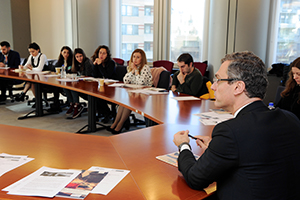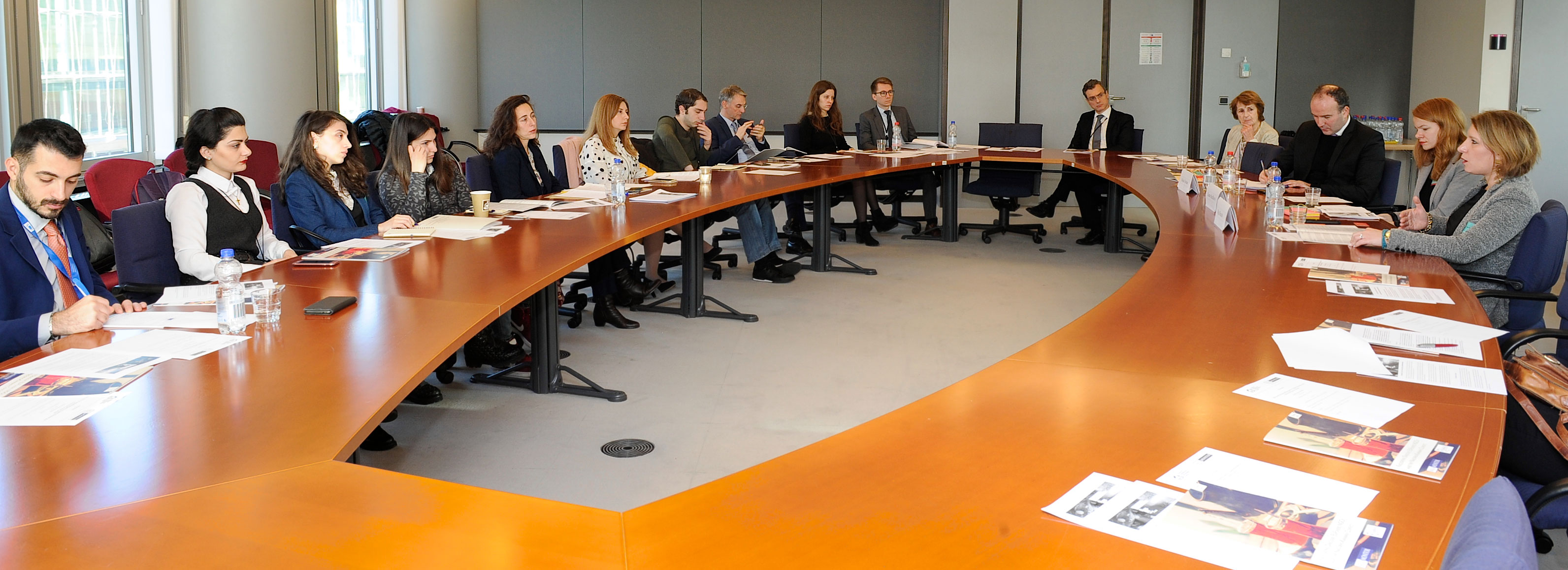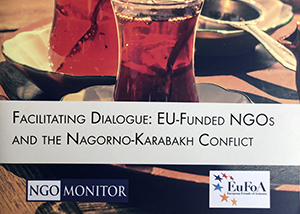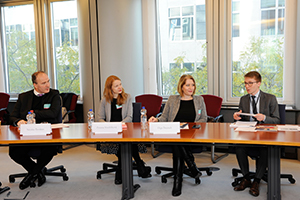GO publishes critical assessment of EU peace-building in Nagorno-Karabakh
- EU programme for peace in Karabakh (EPNK) is “inadequate”
- The EU is currently discussing the programme’s fourth phase
- Next phase must involve actual activities in Azerbaijan, Armenia and Karabakh.
Thursday last week, the presidents of Azerbaijan and Armenia met for a new attempt to prepare the ground for peace in the conflict over Nagorno-Karabakh. In recent months, the climate has improved somewhat between the two countries. It is unlikely, however, that the conflict will be resolved in the near future.
The Nagorno-Karabakh conflict is not the only unresolved conflict in the European neighbourhood. The EU perceives such conflicts as factors of instability in its neighbourhood which jeopardize stability and prosperity in its Eastern periphery.
It is in this spirit that the European Commission launched the EPNK programme in 2010: the European Partnership for Peace in Nagorno-Karabakh. The programme is run by five international organizations specialized in conflit transformation: International Alert, Conciliation Resources and Links (all three in London), the Conflict Management Initiative (Helsinki) and Kvinna till Kvinna (‘Woman to Woman”, Stockholm).
According to partner organizations, EPNK “is a unique initiative, funded by the European Union, that seeks to positively impact the Nagorno-Karabakh conflict settlement process [and] to contribute to lasting peace in the region. Through this dynamic partnership, we seek to build mutual understanding of and confidence in the settlement process […].” The programme has allowed for instance the organization of expert meetings on the conflict, cooperative projects between Azeri and Armenia journalists and meetings between young people.
There is no doubt that confidence-building measures are indispensable to prepare minds for peace. Contacts between Azeris and Armenians are rare indeed, and both sides fear one another. According to a 2017 poll, 63% of the inhabitants of Armenia see in Azerbaijan “the main enemy”, while 91% of Azerbaijanis think the same of Armenia.
By contrast, Armenians and Azerbaijanis generally hold a favourable opinion of the European Union. Indeed, 51% of Azerbaijanis and 76% of Armenians “trust” the EU, a level far higher than their trust in other international organisations such as NATO or the United Nations. The EU may therefore be able to play a role in reducing tensions.
Over the last 8 years, the EU has spent 13 million Euros on the three phases of the EPNK. The programme’s third phase ends in September 2019 and the European institutions are already preparing its next phase. This may therefore be a good time to take stock and assess the progress’s effectiveness.
There is no publicly available official evaluation of the EPNK, but one specialized NGO watchdog, « NGO Monitor » has carried out its own evaluation of the programme.
Their report argues that the EPNK has had very little impact. In fact, says the report « the great majority of the activities supported or carried out under the EPNK did not take place in the affected region and involved very few local players”. The EPNK web site indeed references several conferences and seminars in Oxford, Brussels, Vienna, Minsk and London and none in Yerevan, Baku or Stepanakert (capital of the de-facto republic).
NGO Monitor further observes that the initiatives carried out under the project had very little echo or impact in the region. Its report therefore concludes that «these efforts have been inadequate, failing to meet their stated objectives or to contribute meaningfully to the peace process. In fact, the implementation of EPNK has corresponded with an increase in inflammatory rhetoric and skirmishes, culminating in a renewed round of hostilities in April 2016. So long as these inadequacies remain unaddressed, the EU will most likely not promote other peacebuilding efforts in the region, leaving room for other international actors – first and foremost Russia – to fill the vacuum.”
It appears that the failure of the EPNK is a result of the difficulty for international NGOs to access Nagorno-Karabakh: “beyond limiting the scope of activity in NK itself, ongoing travel bans render it virtually impossible to bring Armenians and Azerbaijanis together in either country. None of the involved organisations suggest strategies to overcome this obvious hurdle or addresses it in any way” Indeed, how can confidence be restored without questioning those policies that aim precisely to prevent contacts between Armenians and Azeris?
Where did EPNK go wrong? NGO Monitor seem to blame the programme’s failures on a bureaucratic logic, where the five consortium members of EPNK are at once in charge of the programme’s design, implementation and assessment, whereas sound management would require a separation between these tasks.
The report is particularly critical for the British NGO « Links ». The NGO went bankrupt in the course of the project and was dissolved in 2013, only to reappear later on in a new form, and again as a project partner. Links, whose work is judged particularly devoid of substance, has also benefitted from subsidies by the OIC Youth Forum, an NGO founded by the Azerbaijani Foreign Ministry.
The EPNK’s inadequacies do not only constitute a missed opportunity and a waste of public money. The programme also allows the EU to nurture the illusion that it is playing its part in helping to restore peace in Nagorno-Karabakh, when in fact it is not. 
After the 4-day war in April 2016, the European Parliament held a debate on the conflict where the EU’s High Representative for Foreign Affairs and Security Policy, Ms Mogherini, stated in reference to EPNK that “the EU has supported measures to facilitate peaceful contacts between the parties to the conflict for a number of years”. In reality, we now know that EPNK does no such thing.
In order to help reduce tensions and promote a measure of trust between Armenians and Azeris, therefore, the European Union will need to insist that parties to the conflict authorize actual contact between their populations and accept that activities for peace in Karabakh be held… in Karabakh.



